#international holocaust remembrance day
Text
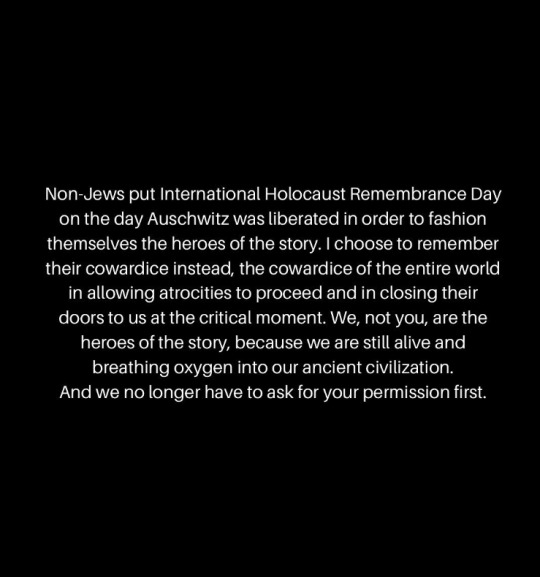
Saw this on Instagram and I had to share:
Non-Jews put International Holocaust Remembrance Day on the day Auschwitz was liberated in order to fashion themselves the heroes of the story. I choose to remember their cowardice instead, the cowardice of the entire world in allowing atrocities to proceed and in closing their doors to us at the critical moment. We, not you, are the heroes of the story, because we are still alive and breathing oxygen into our ancient civilization. And we no longer have to ask for your permission first.
[credit: blakeflayton ]
#jumblr#antisemitism#holocaust#shoah#holocaust remembrance day#ihrd#international holocaust remembrance day#genocide#antiziganism
1K notes
·
View notes
Text
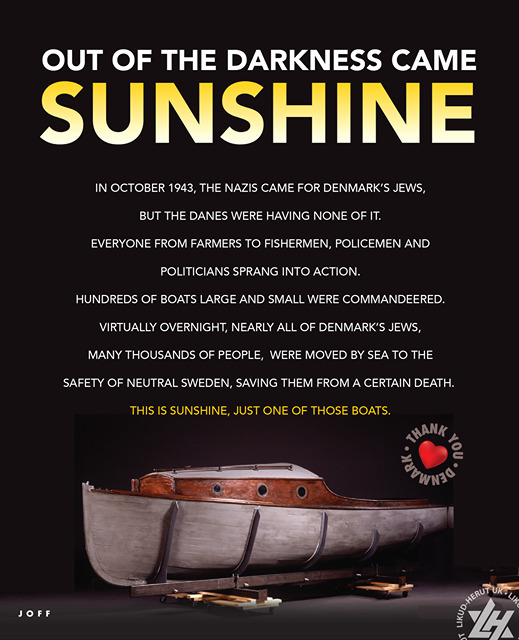
Tomorrow, Saturday the 27th of January, is International Holocaust Remembrance Day. Today, we pay tribute to the people of Denmark, incredible people whose courage, resilience and defiance in the face of the Nazi onslaught saved many thousands of Jewish lives. THANK YOU
Likud UK
200 notes
·
View notes
Text
To my Jewish friends: today is tough. May the memories of our loved ones be a blessing, and may their strength guide us ever forward.
97 notes
·
View notes
Text
youtube
When the Jews of Bergen-Belsen concentration camp were liberated on April 20th 1945, they sang Hatikvah. At the end of the anthem, British Army Chaplain Rabbi Leslie Hardman, cried out, “Am Yisrael Chai – the Children of Israel still live!” (x)
Am Yisrael Chai is a very old phrase. Hundreds of years, at least. It states that the Jewish people are still living, despite every attempt that Romans, Christians, and Muslims have made to mass murder us over the last 2000 years of world history.
We are still here.
The Jewish people are still here, despite every attempt that has been made to culturally appropriate our history, our culture, and our religion.
When you read the "Old Testament," you are reading OUR Tanakh. You are reading a JEWISH sacred text. When you read about Joseph, and Moses, those are JEWISH figures. They are Yoseph (יוסף), and Moshe Rabbeinu (משה רבנו). Moshe was not a Christian, and he was not Muslim. Moshe was a Jew. Never forget that.
Am Yisrael Chai: The Story Behind The Bergen-Belsen Recording
by Milad Doroudian (x)
"Am Yisrael Chai!", shouted Rabbi L.H. Hardman who had finished conducting the first pre-Shabbat sermon that many of the Bergen-Belsen camp survivors had not seen for 6 years. Although weakened by hunger, disease, and the death of their loved ones, on the 20th of April, 1945 many whose spirits still remained strong began to sing “Hatikvah” ("The Hope"), so the world can hear that they were there, and they survived.
There is a very good chance that you have heard this emotional recording, but have you ever stopped to truly consider the story behind it? Despite the sadness, yet immense hope in the voices of the singers: Who were they? How did they get there? And perhaps most importantly: What happened to them?
These questions are almost impossible to answer as history does not afford us many recorded accounts. Yet, this was the case in 1945. After the death of 6 million Jews in Europe, and an atrocious war which took the lives of 65 million. Confusion was normalcy. It was those amid the confusion such as Patrick Gordon Walker, a reporter for the BBC, who wanted to record the stories of what happened that managed to collect the few stories that we have left today. Nothing could have prepared him, or the soldiers who liberated the camp days earlier, for the horrors that lay inside.
The Bergen Belsen camp , which was established in 1941 in the middle of Germany served as a death camp for Jews, homosexuals and political prisoners. The exact number of how many people died during those years is not known, however when the British and Canadian 11th armoured Division liberated it, they found 60,000 people, most of which were extremely emaciated and suffering from typhus.
Walker entered the camp five days after its liberation to find people who could no longer possibly function because of hunger, only to be greeted with the sounds of “God Save The King” played on an detuned piano in order to honour the British and Canadian liberators. People were joyous, despite their condition and the fact that many were still dying. In fact, they sang, and talked with their liberators who gave them food, and comforted them by reminding them that they were human beings.
“What I saw there will always haunt me” said Walker in his famous broadcast, and this was the case as there were truly more dead in the camp than living. One soldier’s account of how he saw a mother and child dying of sickness right in front of him, was only one of hundreds when the soldiers first found the abandoned camp.
Yet, perhaps what is more interesting is not simply the survivors who sang the Hatikvah (The Hope) after liberation, but those who did when they were being led to their deaths. The account of Jan Michaels, a Polish Jew who saw a group of Jewish Czechs singing the future national anthem of Israel, while they were on their way to the gas chambers. Michaels said that the SS guards could not stop them from singing, as their hope was unstoppable even in the face of certain death.
Yet, why is this so important to remember?
However melancholic it is to remind ourselves of these horrible stories, it is essential that we remember all those who have perished, as well as those who lived on to sing the Hatikvah after their liberation, as it is was their hope to be reunited with those they loved in Eretz Tsion. Now, today, Israel still faces enemies who want its people abolished, but that will never again be possible.
To answer the first questions:
Who were they? They were just like you and I. How did they get there? Through unbelievable xenophobia, hatred and ignorance. What happened to them? They live on in all Jewish hearts, and more importantly they live on through Israel.
#jewish history#jumblr#never again#never forget#international holocaust remembrance day#never again is now#NOTE: I report and block antisemites. If any antisemites comment on this post you will be reported and blocked. You have been warned#Youtube
78 notes
·
View notes
Photo
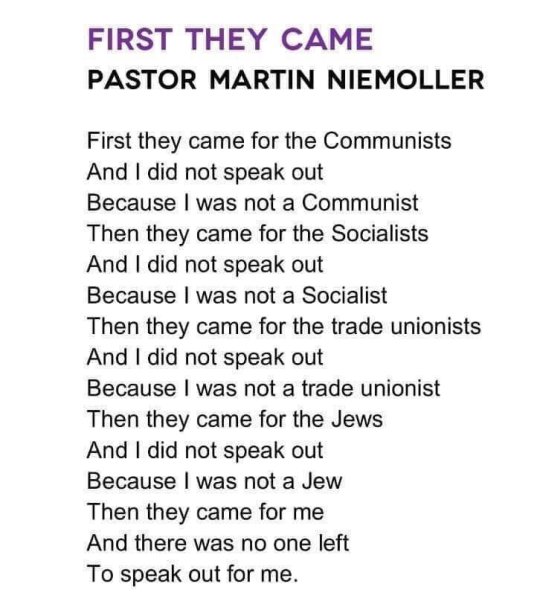
#Martin Niemoller#Niemoller#Jew#Jews#Jewish#Holocaust#speak out#International Holocaust Remembrance Day#Germany#Nazi#Nazis#remember#remembrance#Never again
190 notes
·
View notes
Text

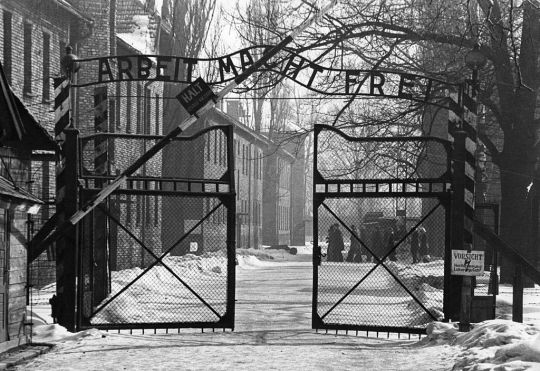
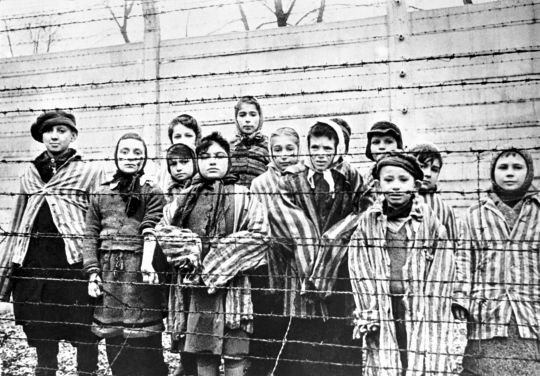
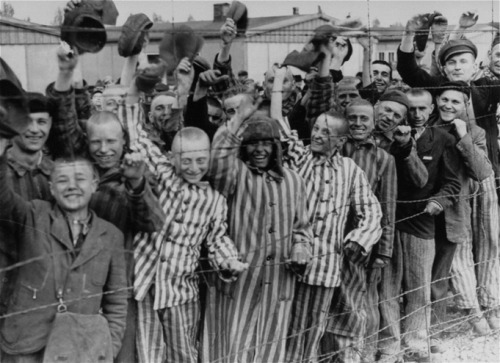
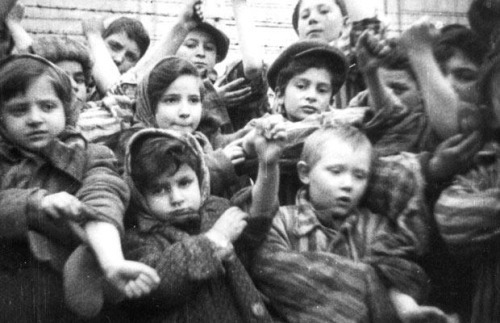

Today is International Holocaust Remembrance Day.
January 27 marks the anniversary of the liberation of Auschwitz-Birkenau, the largest Nazi death camp.
In 2005, the United Nations General Assembly designated this day as International Holocaust Remembrance Day (IHRD), an annual day of commemoration to honor the victims of the Nazi era.
From 1940 to 1945, more than 1.1 million men, women and children were killed in the Auschwitz concentration camp. 90% of them were Jews. All were innocent. Today, we remember
Never Again.
Source: yadvashem.org
276 notes
·
View notes
Text
Was I surprised by how many Nazis there were? No, only by how few anti-Nazis there were. Silence is admittance.
Simon Wiesenthal
#jumblr#international holocaust remembrance day#holocaust#holocaust remembrance day#silence is complicity
21 notes
·
View notes
Text
Hi,
Do you remember that today is the international day of holocaust remembrance?
Yeah, neither did Tumblr:

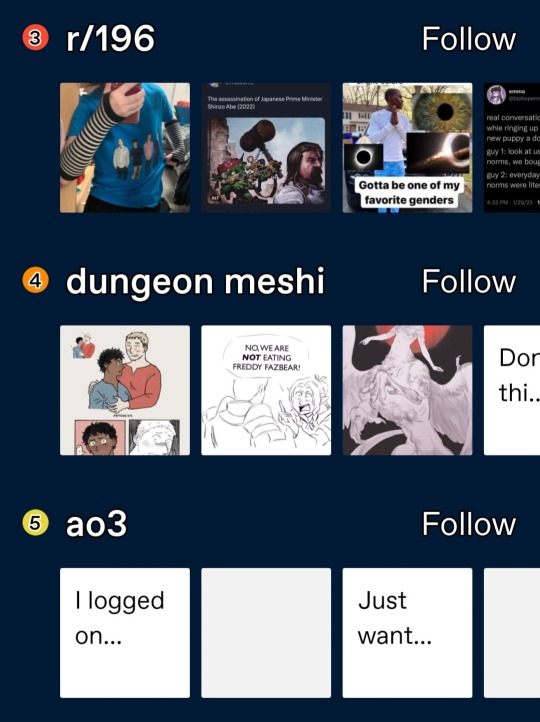
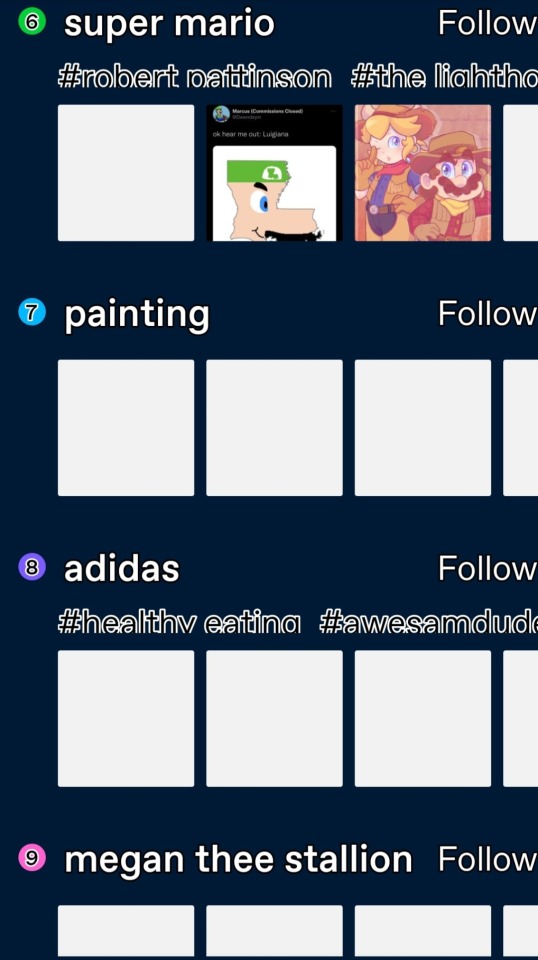
#international holocaust remembrance Day#holocaust remembrance Day#holocaust#shoah#Tumblr#adidas#bts#r/196#genocide#ao3
17 notes
·
View notes
Text
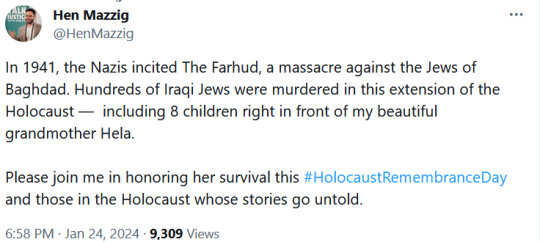
Hen Mazzig
9 notes
·
View notes
Text

“Occasionally I tell a few stories [about the Holocaust] [...], if someone asks. But that rarely happens. Wars, and hence the memories of wars, are owned by the male of the species. And fascism is a decidedly male property, whether you were for or against it. Besides, women have no past, or aren’t supposed to have one. A man can have an interesting past, a woman only an indecent one”
— Ruth Klüger
CW: sex trafficking, corrective rape, forced pregnancy
Queer people as a whole have been systematically removed from the narrative around the holocaust. This is doubly the case for queer women, who stand on the intersection of two marginalizations that often are erased from the common understanding of historical events.
There were queer women all throughout the world fighting in World War 2, and so too were there queer women who were specifically victimized during the holocaust.
Before the Nazis came to power, Berlin was one of the safer places for queer people in Europe. A rich queer culture had developed there, one that embraced open-mindedness and the study of queer lives.
There were queer bars, clubs, societies, libraries, and so on. Despite the general atmosphere of safety, however, homosexuality was still illegal under Paragraph 175.
It's important to note that Paragraph 175 did not make romantic or sexual relationships between women illegal. Additionally, the legal definitions of "man" and "woman" at the time referred only to the gender assigned at birth.
This is where many historical summaries of the lives of queer women in Germany stop, but it is not where history stops.
More + References >
#holocaust#queer history#lgbqti#queer#lgbtq#lgbt#trans#lesbian#bi#homosexuality#homosexual#nazi#antifascist#fascism#genocide#germany#international holocaust remembrance day#1933#1930s#1945#1940s#30s#40s
8 notes
·
View notes
Text
Thinking about my Nana & Great-Grumps today 💔
20 notes
·
View notes
Text
youtube
Baruch ata Adonai, Eloheinu melech ha-olam, borei p’ri hagafen.
Baruch ata Adonai, Eloheinu melech ha-olam, asher kid’shanu b’mitzvotav v’ratza vanu, v’shabbat kod’sho b’ahava uv’ratzon hinchilanu, zikaron l’ma’aseh b’reishit. Ki hu yom t’chila l’mikra-ay kodesh, zaycher l’tziat mitzrayim. Ki vanu vacharta v’otanu kidashta mikol ha’amim. V’shabbat kod-shi-cha b’ahava uv’ratzon hinchal tanu. Baruch ata Adonai, mi’kadesh ha Shabbat.
(Blessed are you, Lord our G-d, Ruler of the Universe, who creates the fruit of the vine.
Blessed are you, Lord our G-d, Ruler of the Universe, how has sanctified us with his commandments and favored us, and given us in love and favor his holy Shabbat as an inheritance, as a remembrance of the act of creation. For this day is the beginning of all holy days, a remembrance of the Exodus from Egypt. For you have chosen us and you have blessed us from among all the nations. And you have bequeathed us your holy Shabbat in love and favor. Blessed are you, Lord, who sanctifies Shabbat.)
.
Feel this, to all those races, colors, and creeds, every man bleeds
For the countless victims and all the families of the murdered, tortured, enslaved
Raped, robbed and persecuted — Never Again
To the men, women, and children who died in their struggle to live
Never to be forgotten, proving Ben-Menachem, yo…
.
My own blood dragged through the mud
Perished in my heart, still cherished and loved
Stripped of our pride, everything we lived for
Families cried, there's nowhere to run to, nowhere to hide
Tossed to the side, access denied
6 million died, for what?
.
Yo, a man shot dead in his back
Helpless women and children under constant attack
For no reason 'til the next season and we still bleeding
Yo it's freezing and men burn in Hell, some for squeezing
No hope for a remedy, nothing to believe
Moving targets who walk with the star on their sleeve
Forever marked with a number tattooed to your body
Late night, eyes closed, clutched to my shotty
Having visions, flashes of death camps and prisons
No provisions, deceived by the Devil's decisions
Forced into a slave, death before dishonor
For those men who were brave, shot and sent to their grave
Can't awaken, it's too late, everything's been taken
I'm shaken, family, history in the making
.
Never again shall we march like sheep to the slaughter
Never again shall we sit and take orders
Stripped of our culture, robbed of our name
Raped of our freedom and thrown into the flames
Forced from our families, taken from our homes
Removed from our G-d then burned of our bones
Never again, never again, shall we march like sheep to the slaughter
Never again leave our sons and daughters
Stripped of our culture, robbed of our name
(Never again) Raped of our freedom and thrown into the flames
Forced from our families, taken from our homes
Removed from our G-d and everything we own (Never again)
.
Some fled through the rumors of wars
But most left for dead, few escaped to the shores
With just one loaf of bread, banished
Called in for questioning and vanished, never to be seen again
I can't express the pain, that was felt in the train
To Auschwitz, tears poured down like rain
Naked, face to face with the master race
Hatred, blood, and David, my heart belongs to God and stays sacred
Rabbis and priests, disabled individuals
The poor, the scholars — all labeled common criminals
Mass extermination, total annihilation
Shipped into the ghetto and prepared for liquidation
Tortured and starved, innocent experiments
Stripped down and carved up or gassed to death
The last hour, I smelled the flowers
Flashbacks of family then sent to the showers
Powerless, undressed, women with babies clumped tight to their chest — crying
Who would've guessed — dying
Another life lost, count the cost
Another body gas-burned and tossed in the Holocaust
.
Never again shall we march like sheep to the slaughter
Never again leave our sons and daughters
Stripped of our culture, robbed of our name
Raped of our freedom and thrown into the flames
Forced from our families, taken from our homes
Removed from our G-d and everything we own
Never again, never again, shall we march like sheep to the slaughter
Never again shall we sit and take orders
Stripped of our culture, robbed of our name
(Never again) Raped of our freedom and thrown into the flames
Forced from our families, taken from our homes
Removed from our G-d then burned of our bones (Never again)
.
Never Again. Never Again.
.
From the USA to Afghanistan
From Israel to Pakistan
From Iraq to Iran
To Russia, Poland, and France
From China over to Japan
Worldwide
Never Again
.
Shema Yisrael Adonai eloheinu Adonai ehad
(“Hear O Yisrael, the Lord is our G-d, the Lord is One.” The Shema is the most important prayer in Judaism. It is the declaration of our faith in one G-d. Jews say the Shema prayer every day, in the morning and evening. And we also say the Shema before we die.)
FIRE!
*GUNSHOT*
#jewish history#jumblr#never again#never forget#never again is now#international holocaust remembrance day#shoah#NOTE: I report and block antisemites. If any antisemites comment on this post you will be reported and blocked. You have been warned.#Youtube
33 notes
·
View notes
Text
*sigh* I've been trying to think what to say about International Holocaust Remembrance Day and then....

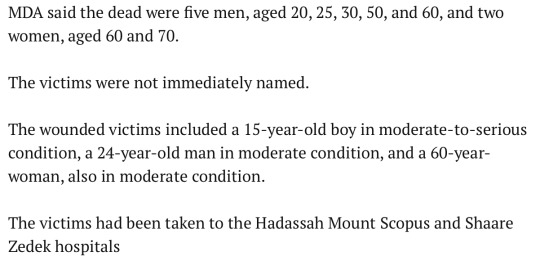
another holiday about dead Jews marked with some more dead Jews.
link
January 27th 2023.
85 notes
·
View notes
Text

Never Again. Never Forget.
International Holocaust Remembrance Day.
Documenting Anti-Semitism
72 notes
·
View notes
Text



January 27th is Holocaust Remembrance Day. The last time I seriously studied the Holocaust was when I was a grade school student. Recently, I realized that history written for adults would probably ask me to face difficult questions far beyond the Allies-as-heroes, hope-filled narrative I'd been taught as a kid. In addition, a lot of important history on the Holocaust has been written only recently. There are many survivors who weren't ready to tell their stories for decades; there are archives that were not available to historians years ago.
I'm going to take time this year to study the Holocaust again. These are some of the books that I might be reading—most recently published, most recommended by the Jewish Book Council or recipients of the Canadian Jewish Literary Awards.
If anyone wants to do so as well, that's great, but even more important is that we support the Holocaust survivors who are still with us today, many of whom live in poverty. There are many charities that do the important work of helping survivors. I hope that if you are able you will consider donating today.
#holocaust remembrance day#international holocaust remembrance day#holocaust#antisemitism#jewish book council#booklr#book recommendations#history#nonfiction#i'm not personally comfortable recommending a specific charity but#if someone else is then please feel free to recommend it#readblr
84 notes
·
View notes
